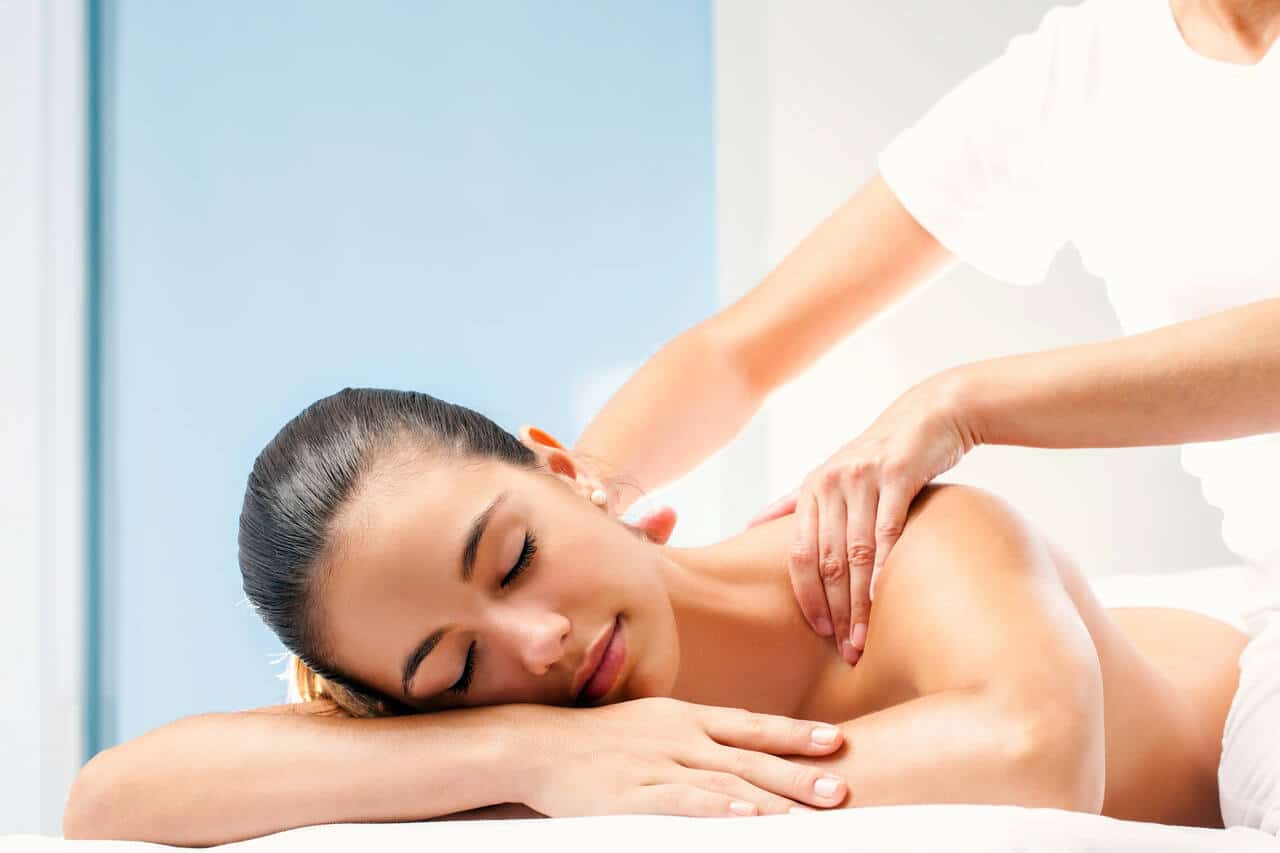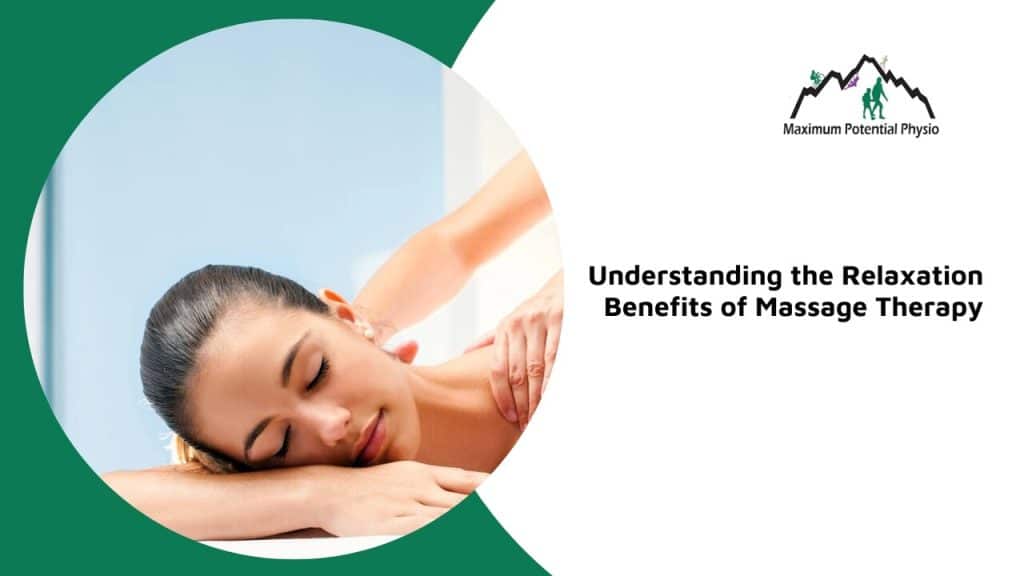Understanding the Relaxation Benefits of Massage Therapy

Relaxation isn’t just about taking time off—it’s a necessary part of maintaining your physical and emotional well-being. In a world where stress is a daily companion, massage therapy offers a natural and effective way to unwind, recharge, and restore balance. In this blog, we’ll explore how massage therapy promotes relaxation, which types are most effective, how often to get a massage, and what benefits you can expect—both physically and mentally. Whether you’re looking to improve sleep, reduce anxiety, or simply feel more at ease, this guide will help you understand how massage therapy can support your health goals.
The Role of Massage Therapy in Promoting Relaxation
Massage therapy is known for its calming effects on both the body and the nervous system. Through targeted touch and rhythmic movements, it helps activate the body’s natural relaxation response. Here’s how massage contributes to a state of calm:
- Stimulates the Parasympathetic Nervous System: Massage activates the body’s "rest and digest" mode, which helps reduce heart rate, lower blood pressure, and promote relaxation.
- Lowers Cortisol Levels: Cortisol, the primary stress hormone, is reduced during massage, helping to alleviate the physical and emotional effects of stress.
- Releases Endorphins: Massage promotes the release of feel-good chemicals like serotonin and dopamine, which enhance mood and relaxation.
- Relieves Physical Tension: Mental stress often manifests physically in the form of muscle tightness, especially in the shoulders, neck, and back. Massage helps release this tension.
- Encourages Mindfulness: The quiet, calming environment of a massage session allows for mental stillness and present-moment awareness.
The combination of physical and emotional relaxation makes massage therapy an effective, holistic tool for managing stress and restoring well-being.
Types of Massage Therapy Used for Relaxation
While there are many types of massage available, some techniques are especially effective when the goal is to relax both the body and mind. Here are a few of the most popular options for promoting deep relaxation:
- Swedish Massage: This technique uses long, flowing strokes, gentle kneading, and rhythmic tapping to promote overall relaxation, ease muscle tension, and improve circulation.
- Aromatherapy Massage: Combining a Swedish-style massage with essential oils like lavender, eucalyptus, or chamomile, this approach enhances relaxation through soothing scent and touch.
- Hot Stone Massage: Smooth, heated stones are placed on the body and incorporated into the massage, helping to release deep muscle stiffness and induce a profound sense of calm.
- Reflexology: Focused pressure is applied to specific points on the feet, hands, or ears, stimulating the body’s natural healing response and encouraging balance and tranquility.
- Lymphatic Drainage Massage: Gentle, rhythmic strokes stimulate the lymphatic system to support detoxification and promote a subtle but deeply relaxing effect.
Your choice of massage should reflect your stress levels, personal preferences, and how your body responds to different pressures and techniques.
How Often Should I Get a Massage for Relaxation?
How frequently you should get a massage depends on your stress levels, lifestyle, and overall health goals. If you’re dealing with a high-stress routine or regularly experience tension and fatigue, weekly or biweekly massages may help maintain a sense of calm and prevent stress from accumulating. For those with moderate stress or occasional discomfort, a massage every two to four weeks is usually enough to manage tension and support mental balance. If you’re simply aiming to maintain well-being and prevent issues from developing, a monthly massage can be an effective part of your routine.
What matters most is consistency—making massage therapy a regular part of your self-care, rather than something you turn to only when stress becomes unmanageable, helps create long-term benefits for both the mind and body. Over time, regular sessions can enhance your ability to relax more quickly and maintain a calmer, more balanced state throughout your day-to-day life.
Can Massage Therapy Help Reduce Stress and Anxiety?
Massage therapy is a well-documented method for reducing both physical and emotional symptoms of stress and anxiety. Its calming effects extend beyond the session itself and can improve mental health over time. Here's how:
- Regulates the Nervous System: By encouraging parasympathetic activity, massage slows the heart rate and promotes a sense of calm.
- Reduces Muscle Tension: Chronic anxiety often causes physical symptoms such as clenched jaws, tight shoulders, or digestive upset. Massage helps release this tension.
- Improves Sleep Quality: Better sleep is closely linked with reduced anxiety, and massage therapy can support more restful and restorative sleep patterns.
- Encourages Emotional Release: Some people find that massage helps them process emotional stress by creating a space to relax and decompress.
- Decreases Physical Symptoms of Anxiety: Massage may help with symptoms like headaches, fatigue, and gastrointestinal discomfort associated with chronic stress.
When used regularly, massage therapy can be a valuable part of an integrative approach to managing anxiety and improving quality of life.
What Happens to the Body During a Relaxation Massage?
A relaxation massage initiates several physiological changes that contribute to a sense of well-being. These include:
- Slowing of the Heart Rate and Breathing: As the nervous system relaxes, the heart rate drops and breathing becomes deeper and more rhythmic.
- Decreased Muscle Activity: Massage reduces activity in overactive muscles, relieving stiffness and increasing comfort.
- Increased Circulation: Improved blood flow delivers oxygen and nutrients to tissues while helping remove metabolic waste.
- Release of Neurochemicals: The body increases production of serotonin and dopamine, improving mood and reducing tension.
- Lowered Blood Pressure: Repeated sessions may have a cumulative effect in reducing baseline blood pressure levels.
These changes help the body shift into a state of rest and recovery, making massage an effective method for managing stress and encouraging mental clarity.
How Long Does It Take to Feel the Relaxing Effects of a Massage?
The relaxing effects of massage therapy can begin during the session itself and often continue well afterward. Some people notice a shift in mood and body tension within just a few minutes of the massage starting, especially when receiving calming techniques like Swedish or aromatherapy massage. Others may find it takes longer to feel fully relaxed, particularly if they arrive at the session with high levels of stress or tension. The length of the massage can also play a role—longer sessions tend to allow more time for the nervous system to settle into a restful state.
Regular clients often report that they’re able to relax more quickly with each subsequent session, as their body becomes more familiar with the experience. Even if the effects aren’t immediate, many people feel the full benefits later—when they notice they’re sleeping more soundly, breathing more deeply, or moving through their day with greater ease and focus.
Maximizing Relaxation Massage Benefits: What to Do Before and After a Session
To get the most out of your massage therapy session, simple steps before and after your appointment can enhance its effects and prolong your sense of calm.
Before the Massage:
- Hydrate Well: Drinking water beforehand prepares your muscles and helps flush out toxins during and after the session.
- Avoid Heavy Meals: A light snack is fine, but a full stomach can cause discomfort when lying face down or on your back.
- Arrive Early: Give yourself a few extra minutes to check in, relax, and mentally shift into a calmer state before your session begins.
- Communicate Your Needs: Let the therapist know if you’re experiencing any areas of tension or discomfort, or if you have specific relaxation goals.
After the Massage:
- Drink More Water: Staying hydrated helps your body process the waste products released during massage.
- Rest if Possible: If your schedule allows, take it easy for a few hours post-massage to fully enjoy the relaxed state.
- Avoid Intense Physical Activity: Let your muscles rest before jumping back into strenuous exercise.
- Take a Warm Bath or Shower: Warm water can extend the calming effects and soothe any lingering tension.
These small habits can make a noticeable difference in how long the benefits of massage therapy last.
Possible Risks or Contraindications for Relaxation Massage
While massage therapy is generally safe for most people, there are certain situations where it may not be appropriate or may need to be modified. These include:
- Serious Injuries or Surgeries: If you’re recovering from a major injury or surgical procedure, massage may need to be delayed or adapted based on your healing stage. It’s important to get medical clearance in these cases.
- Active Infections or Illness: Massage may worsen symptoms or spread infection; it’s best to wait until fully recovered.
- Certain Medical Conditions: People with conditions like deep vein thrombosis, severe osteoporosis, or uncontrolled high blood pressure should consult a healthcare provider first.
- Skin Conditions or Rashes: Open wounds, burns, or contagious skin conditions should be fully healed before massage.
- Pregnancy (Without Prenatal Certification): Pregnant individuals should only receive massage from therapists trained in prenatal care.
Always inform your massage therapist of any health conditions, medications, or concerns so they can adjust the session for your safety and comfort.
How Massage Therapy Helps with Emotional Well-Being and Mental Clarity
Massage therapy plays a meaningful role in supporting emotional well-being and mental clarity. The act of slowing down in a calm, quiet environment can provide a mental reset, helping the brain shift away from overstimulation. Many people experience emotional relief during or after a massage, especially when stored tension in the body is released. This can be particularly helpful for those managing mild anxiety, low mood, or mental fatigue. The focused attention and therapeutic touch of massage also promote mindfulness, grounding individuals in the present moment and improving their awareness of how stress affects the body. As the session progresses, the brain releases chemicals like serotonin and dopamine, which are known to enhance mood and reduce feelings of anxiety. When combined with other healthy habits, massage therapy can offer a powerful way to feel more centred, emotionally balanced, and mentally refreshed in daily life.
When to Avoid Massage Therapy for Relaxation
Although massage is beneficial for many, there are times when it should be postponed or approached with caution:
- During Acute Illness: If you're experiencing fever, cold symptoms, or general malaise, it’s best to reschedule.
- Immediately After Intense Workouts or Injuries: Muscles may need time to recover before being manipulated.
- After Alcohol or Drug Use: Massage can intensify the effects of substances and is not recommended under these conditions.
- If You’re Not Comfortable: Emotional readiness is important—if you feel uneasy about being touched or have anxiety around bodywork, it may be better to delay or discuss options with the therapist.
- Without Medical Clearance: If you have a complex or chronic health condition, check with your healthcare provider before beginning massage therapy.
Listening to your body and knowing when to pause is just as important as recognizing when massage is beneficial.
You Deserve to Live Stress-Free
Relaxation isn’t a luxury—it’s essential for staying healthy, focused, and energized. Whether you're dealing with stress, sleep troubles, or chronic tension, massage therapy offers a calming solution that benefits both body and mind.
At Maximum Potential Physiotherapy in Calgary NW, we provide personalized massage therapy services designed to support your relaxation and health goals. Reach out today to book your session and discover how regular massage therapy can help you unwind, recharge, and feel your best—naturally.

